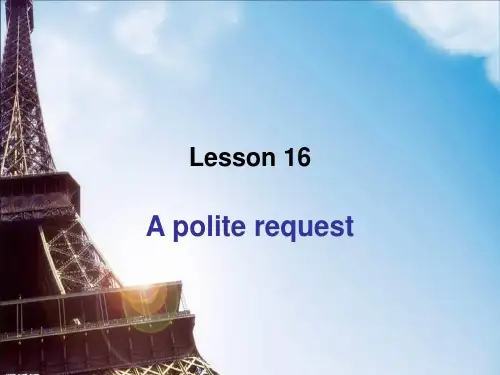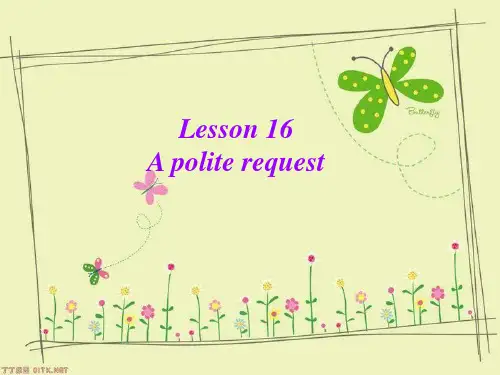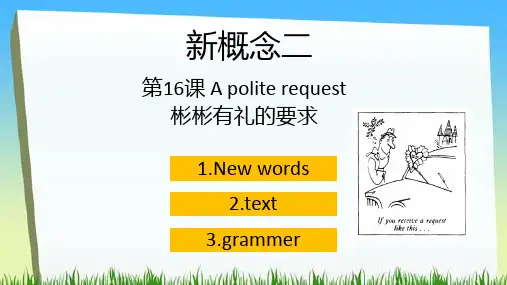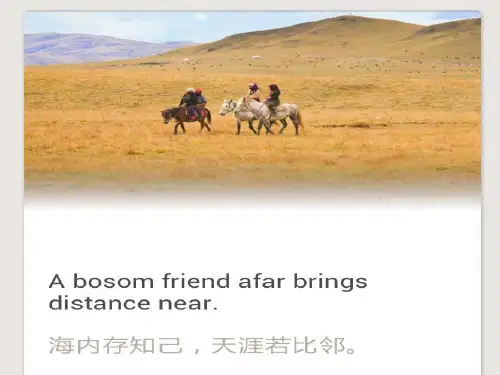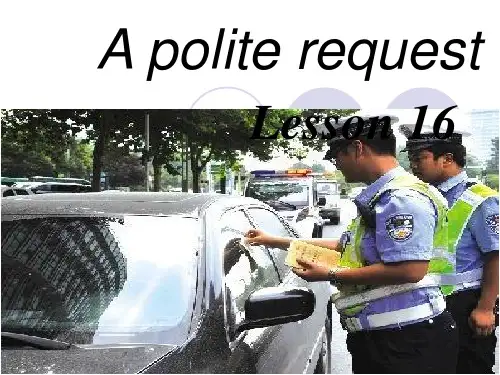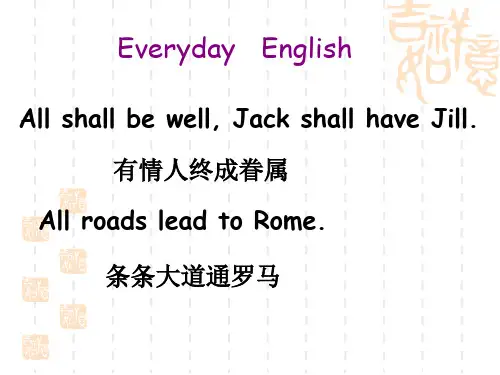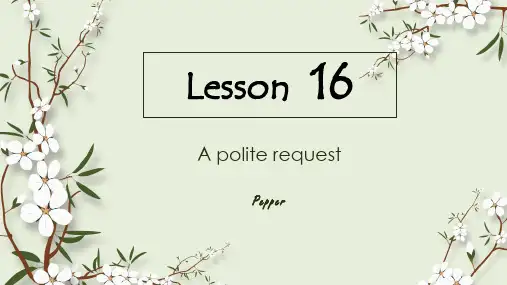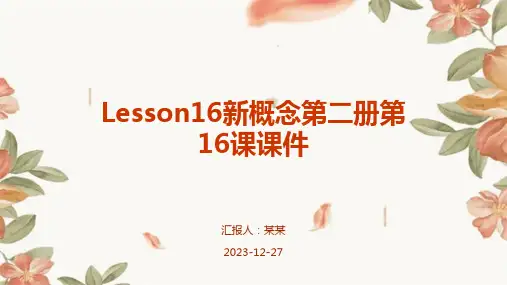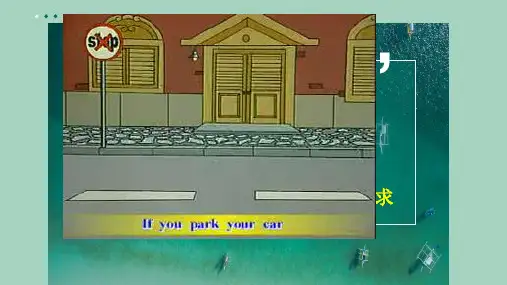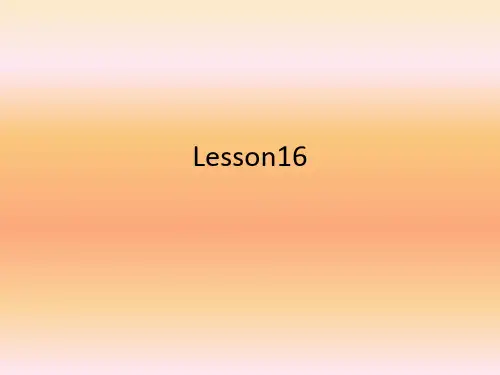无生命(表示物)的集合名词,如clothing,furniture, machinery,equipment,jewellery,baggage,luggage, traffic等只作单数看待,作主语时,谓语用单数。
“more than one + 单数名词”结构作主语,尽管从意义上看 是复数,但它的谓语动词用单数形式。 “more+复数名词+than one”结构作主语时,谓语动词用复数 形式。
金钱,时间,价格或度量衡的复合名词作主语 时,谓语用单数 Three weeks was allowed for making the necessary preparations. Ten yuan is enough.
在代词what, which, who, none, some, any, more, most, all等词 的单复数由其指代的词的单复数决定。
倒装句的谓语动词的单复数应根据后面的主语而定。 East of the city lie two chemical works. Between the two buildings stands a monument.
Text 04
If you park your car in the wrong place, a traffic policeman will soon find it. You will be very lucky if he lets you go without a ticket. However, this does not always happen. Traffic police are sometimes very polite.
During a holiday in Sweden, I found this note on my car:'sir, we welcome you to our city. This is a "No Parking" area. You will enjoy your stay here if you pay attention to our street signs. This note is only a reminder.' If you receive a request like this, you cannot fail to obey it!
